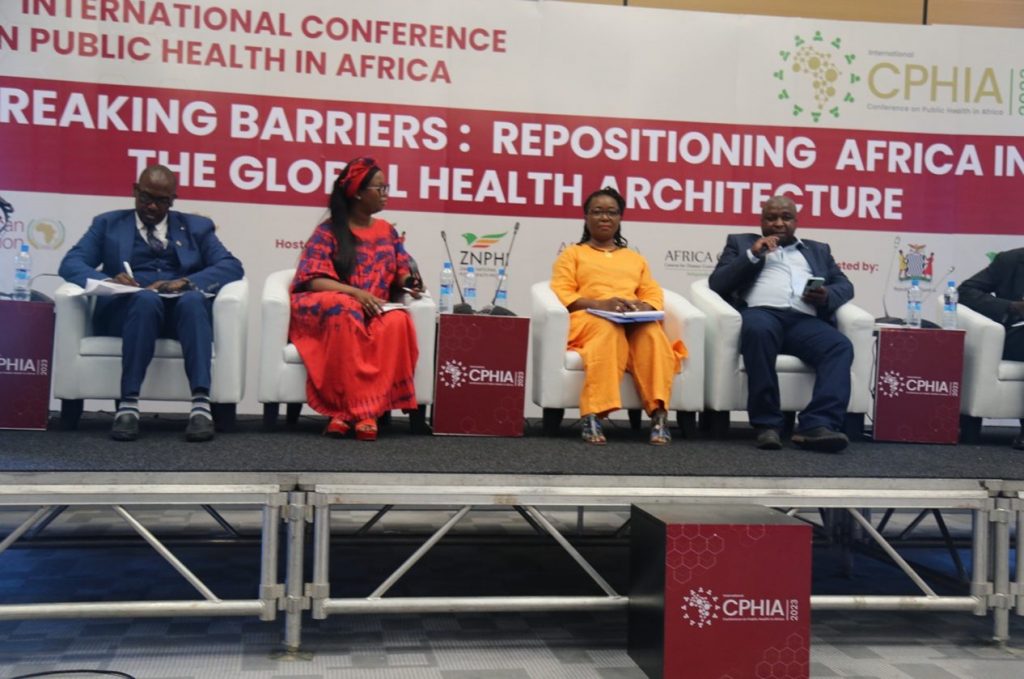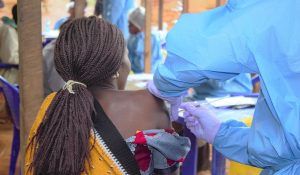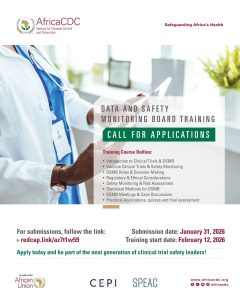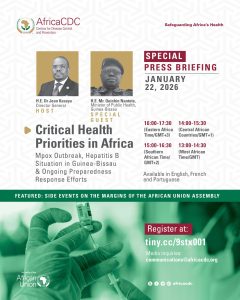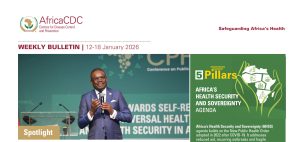Risk Communication and Community Engagement (RCCE) is widely recognized as a critical component of public health emergency preparedness and response. At the height of the COVID-19 pandemic, the Africa CDC, along with its Member States and key partners, including the World Health Organization (WHO), established the Public Health Risk Communication and Community Engagement Community of Practice for Africa (PH-RCCE-CoPA) in May 2022. This initiative aims to enhance Member States’ capacity and institutionalize RCCE and Social Behaviour Change (SBC) for public health emergencies in Africa.
At the third International Conference on Public Health in Africa (CPHIA) in November 2023, the Africa Centers for Disease Control and Prevention (Africa CDC) hosted an inaugural side event focused on enhancing the Continental RCCE and SBC architecture to prepare communities for future pandemics aligned with the vision for a New Public Health Order.
The meeting served as a strategic advocacy platform to strengthen RCCE efforts, share best practices, and scale up lessons learned across the continent. In emergency preparedness, research plays a pivotal role, and the inclusion of women, children, and mothers in early research participation within priority groups is fundamental. Swift research during emergencies is imperative, and this involves seamlessly incorporating routine monitoring through rumour tracking and effectively weaving in emergency sites.
Challenges in vaccine access, particularly for marginalized groups, highlighted the need for more agile mechanisms to generate access within a two-week timeframe. The consensus was clear – continuous investment in research mechanisms is essential. The importance of incorporating social data into the broader global data landscape and enhancing SBC indicators for a more people-centered approach echoed throughout the discussions.
The significance of making data-based communication personal and testing what works emerged as a critical theme. The need for proactiveness in designing messages to adapt interventions to communities’ evolving needs was underscored. The multifaceted challenge of risk perception, especially for mothers, emphasized the importance of aligning demand and service.
The event concluded with a solid commitment to foundational principles, emphasizing the need to build a fit-for-purpose system centred around RCCE and SBC, pro-gender action, workforce development, and active community listening. Collaboration was seen as a linchpin for addressing cross-cutting issues such as gender, with a focus on creating a strong foundation for future public health challenges.
The inclusion of innovative technologies, AI chatbots, and leveraging digital space for feedback into the SBC system demonstrated a commitment to staying adaptive. The event showcased how IT, media, and data could collaborate in a multimedia approach, considering local languages and packaging stories for a more expansive and targeted audience.
Success for these strategies hinges on anchoring them within the established Technical Working Groups (TWG) for RCCE, national coordination mechanisms, and the integration of RCCE into the global health strategy. The call for diverse partnerships, structured mapping, and community engagement platforms emphasized the need for a proactive, well-coordinated, and inclusive approach to public health emergencies. The experiences shared highlighted the importance of community involvement and trust-building, as well as the necessity guidelines and sustained focus in RCCE and SBC programs. Additionally, the platform signifies a relevant stage for collaboration and knowledge exchange, driving efforts and sustained commitment towards a more effective response to future public health emergencies in Africa. The insights gained are poised to create a robust public health framework, elevating the understanding and appreciation of the central role played by RCCE and SBC during crises and in the post-pandemic landscape. Advocacy will continue to generate an awakened and sustained political commitment to the RCCE and SBC agenda through policies and programming, encouraging increased funding and long-term support. The experiences shared highlight the importance of community involvement and trust
For media enquiries please contact:
Dorothy Njagi | Senior Communication Officer- Communication & Public Information directorate | Africa Centres for Disease Control and Prevention| African Union| email: email: njagid@africacdc.org | Website: www.africacdc.org| Addis Ababa| Ethiopia| Facebook | Twitter

